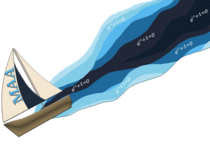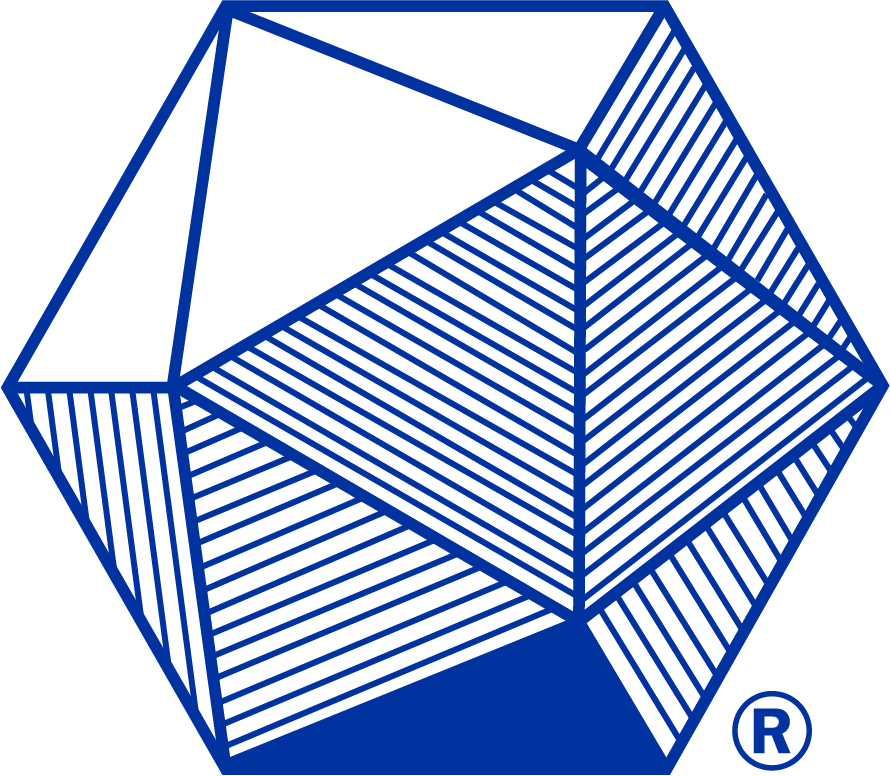Friday – Apr 19
Location: Williams Center G103B
-
- Time:
- 12:00 pm – 5:30 pm
- Title:
- Seaway Project NExT Workshop
-
- Time:
- 3:00 pm – 5:00 pm
- Title:
- Workshop: Exploring Alternatives to Traditional Grading
- Speaker:
- Daniel M. Look, St. Lawrence University
Abstract
In the classroom, evaluation typically manifests as letter/numerical grades, where points are allocated for assessments and a weighted average determines final grades. However, outside the classroom, evaluation takes a markedly different form. Recommendation letters and performance reviews do not typically use numerical scores, while peer reviews for journals offer limited options: reject, revise and resubmit, or accept. Both peer and performance reviews incorporate feedback loops: engage in an action, receive feedback, reflect on feedback, enact changes, and iterate the process. This feedback loop is indispensable for learning; seldom do we perform a task just once and consider it complete. Classrooms tend to be the outlier, often lacking this feedback loop. Students submit assignments and receive a 'locked in' grade accompanied by feedback that may go unread, or if read, may not be comprehended or deemed actionable. In this interactive workshop, we will explore alternatives to the traditional grading scheme, such as ungrading, specifications grading, standards-based grading, contract grading, proficiency grading, and others. Whether you are considering incremental adjustments or a comprehensive overhaul of your course, the aim is for attendees to depart with fresh ideas to contemplate. This workshop welcomes all participants, whether already immersed in alternative assessment methods or encountering the concept for the first time.
Friday – Apr 19
Location: Williams Center S204DE
-
- Time:
- 3:00 pm – 6:00 pm
- Title:
- Meetings of the Executive and Extended Executive Committees
Friday – Apr 19
Location: Williams Center
-
- Time:
- 5:30 pm – 6:45 pm
- Title:
- Registration
-
- Time:
- 6:00 pm – 6:45 pm
- Title:
- Social hour: Cash bar
-
- Time:
- 6:45 pm – 8:00 pm
- Title:
- Banquet
-
- Time:
- 8:00 pm – 8:50 pm
- Title:
- Artificial Intelligence From A Simple Mathematical Perspective
- Speaker:
- Shahin Mehdipour Ataee, SUNY Fredonia
Abstract
In this talk, we delve into the fascinating world of artificial intelligence (AI) through the lens of simple mathematical concepts. Artificial Intelligence has become an integral part of our modern lives, revolutionizing industries and reshaping our understanding of technology. However, behind the complex algorithms and advanced neural networks lies a foundation built upon basic mathematical principles. Throughout the session, we will explore how fundamental mathematical concepts such as linear algebra, probability theory, and calculus underpin the development and functioning of AI systems. By breaking down these intricate AI processes into their mathematical components, we aim to demystify the technology and make it more accessible to a wider audience. Moreover, we will discuss the historical evolution of AI and its connection to mathematics, tracing its roots from Alan Turing's pioneering work to the cutting-edge machine learning models of today. By understanding the mathematical principles driving AI, attendees will gain insights into how these systems learn, reason, and make decisions. Furthermore, we will examine real-world applications of AI from a mathematical perspective, ranging from image recognition and natural language processing to autonomous vehicles and recommender systems. By analyzing these applications through the lens of mathematics, attendees will develop a deeper appreciation for the role of mathematical thinking in shaping the future of AI. Ultimately, this talk aims to equip attendees with a foundational understanding of artificial intelligence rooted in simple mathematical concepts. By bridging the gap between AI and mathematics, we hope to inspire curiosity and empower individuals to explore the limitless possibilities of this transformative technology. Join us on a journey where mathematics meets artificial intelligence, unlocking new insights and opportunities along the way.
-
- Time:
- 9:00 pm – 10:00 pm
- Title:
- Math Game Night
- Speaker:
- Ryan Gantner, St. John Fisher University
Abstract
All are welcome, including students, faculty, and guests to participate in lighthearted games. Laughs will be had, prizes will be available, and you just might learn something!
Saturday – Apr 20
Location: Fenton Hall
-
- Time:
- 7:45 am – 8:25 am
- Title:
- Breakfast and Registration
Saturday – Apr 20
Location: Fenton Hall, Room 105
-
- Time:
- 8:30 am – 8:40 am
- Title:
- Welcome Address: Joe Straight
-
- Time:
- 8:45 am – 9:30 am
- Title:
- Matroids You Have Known
- Speaker:
- Nancy Ann Neudauer, Pacifica University
Abstract
Matroids show up several times in the undergraduate curriculum, but most of us don’t know them by name. In 1933, three Harvard junior-fellows tied together some recurring themes in mathematics, into what Gian Carlo Rota called one of the most important ideas of our day. They were finding properties of dependence in multiple mathematical structures. What resulted is the matroid, which abstracts notions of algebraic dependence, linear independence, and geometric dependence, thus unifying several areas of mathematics. The usefulness of matroids to pure mathematical research is similar to that of groups – by studying an abstract version of phenomena that occur in different realms of mathematics, we learn something about all those realms simultaneously. We find that matroids are everywhere: Vector spaces are matroids; We can define matroids on a graph. Matroids are useful in situations that are modeled by both graphs and matrices. Yet many matroids cannot be represented by a graph nor a collection of vectors over any field. We consider the essential role of matroids in combinatorial optimization.
-
- Time:
- 9:40 am – 10:25 am
- Title:
- Business Meeting
-
- Time:
- 10:30 am – 11:15 am
- Title:
- Gehman Lecture: Tied up in Knots – An Adventure in Undergraduate Research
- Speaker:
- Aaron Heap, SUNY Geneseo
Abstract
Join us for an introduction to knot theory and knot mosaics. Knot theory is a fun branch of mathematics with many useful applications. This talk isn’t about those! We will discuss some knot theory, but we will also discuss some not theory. The not theory portion will involve some knot history, but it will also involve some not history because we will discuss some knot results from the present. Make sure you are present because those who are not present might miss out on knots but will not miss out on presents. There will be an occasional knot pun, a smattering of knot fun, and a revelation that the work is not done.
-
- Time:
- 11:15 am – 11:30 am
- Title:
- Group Photo
Saturday – Apr 20
Location: Cranston Marche
-
- Time:
- 11:30 am – 12:30 am
- Title:
- Lunch
Saturday – Apr 20
Location: Fenton Hall
-
- Time:
- 12:45 pm – 2:55 pm
- Title:
- Contributed and Student Talks (various rooms)
-
- Time:
- 2:10 pm – 2:55 pm
- Title:
- Listening Session with your Section Chair and Program Chair (Room 164)
- Speaker:
- Leah Bridgers, SUNY Oneonta and Cesar Aguilar, SUNY Geneseo
-
- Time:
- 2:10 pm – 3:00 pm
- Title:
- Careers in Mathematics Panel Discussion (Room 168)
Abstract
A session for students interested in hearing about various careers available to math majors. The panelists will include Daniel Look, Shandeepa Wichramasinghe, Megan Johnson, Thoma Pfaff, and Deborah Moore-Russo. This session will be moderated by Joel Louwsma.
-
- Time:
- 3:00 pm – 3:25 pm
- Title:
- Student Posters & Coffee Break
Saturday – Apr 20
Location: Fenton Hall, Room 105
-
- Time:
- 3:30 pm – 4:15 pm
- Title:
- Is anyone truly using math to understand real-world problems?
- Speaker:
- Thomas Pfaff
Abstract
If the response was no, there would be no talk to give. In my humble opinion, the math community is frequently unaware of the math being used outside of math journals. There are several good reasons for this. This session aims to break down some of these barriers by providing examples of math being utilized to help people understand modern-day challenges. From electric vehicles to whales, we'll look at some interesting mathematics that can be utilized to supplement our courses or serve as the foundation for student projects.

